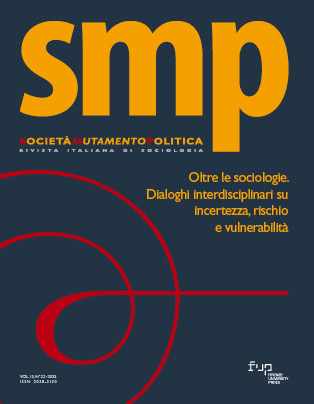Published 2023-02-16
Keywords
- Science,
- politics,
- contestation,
- public debate
How to Cite
Abstract
According to the prevalent reading, we are today witnessing an epistemological conflict that takes the form of a war on science, which is nurtured by disinformation and instrumentalised by populist parties. The aim of this article is to contribute to a more complex reading of the phenomenon, over and above the science vs. anti-science dichotomy. As a result of the entry of science – and scientists – into public debate and public interaction between experts and non-experts we witness the overcoming of the perception of science as a monolith, which is followed by the tendency to overcome a deferential attitude towards scientific expertise. The legitimate exercise of criticism and skepticism towards institutions, however, often ends up conforming to a Manichean vision, which distinguishes good and bad, friend and foe, truth tellers and liars. The unconditional faith in institutions, demanded by technocrats, is overturned by an unconditional mistrust, which does not allow for open claims and compromises. Not denying the centrality of the epistemic dimension of conflict, our hypothesis is that conflicts over science are in fact also – and above all – conflicts of a political nature, that is, conflicts that do not usually have science and technology per se as their object, but rather political decisions on scientific-technical and health-related issues. This suggests, implicitly, that the application of a technology by the market may be more accepted, and thus that the market enjoys greater legitimacy than politics, because the market promises, in the abstract, freedom of choice. The contrast between technocracy and populism, between a policy reduced to conforming to scientific knowledge whose limits and ambiguities are downplayed – or not recognized – and a policy that rejects the role of experts – highlights a generalised distrust of democratic politics. The public sphere, as a place of deliberation and democratic management of complexity and plurality, is thus reduced to the clash between irreconcilable visions.


